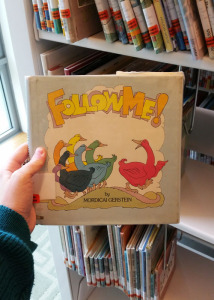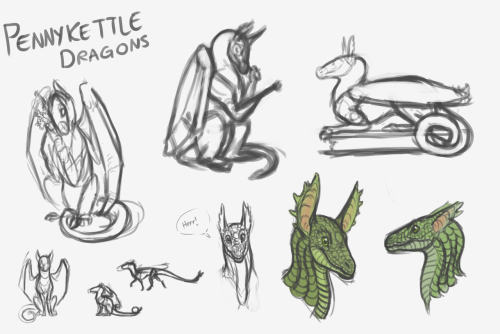“There’s such a fearful unreality about this place.”
It’s alive! as Dr. Frankenstein would say. It’s alive! Well, partially.
Cross-dimensional eccentric millionaire Barnabas Collins has been pulling the old wall switches and setting the apparatus humming in the basement again, trying to restore life force to a young woman who’s low on get-up-and-go.
For the last few months, the lady in Stokes’ back parlor has been flat on her back, donating her élan vital to prop up the dangerous regime of soap-vixen sorceress Angelique. Barnabas, always open to new experiences, has decided to inexplicably fall in love with this comatose couchsurfer, who so far has opened her eyes once and is otherwise resting in peace. So he’s kidnapped the girl, strapped her to some mad science junk in the Old House basement, put several minutes of lightning through her veins and then stroked her face, all of which managed to get her to open her eyes again.
Now, in a perfect world, Roxanne would leap up onto the table and do a high-kicking musical number, like the frog in the Looney Tunes cartoon. “Hello ma baby, hello ma honey, hello ma ragtime gal! Send me a kiss by wire — baby, my heart’s on fire!”
This doesn’t happen. She just opens her eyes, stands up and looks around with a bland expression. The world is still just as imperfect as we always feared it would be.
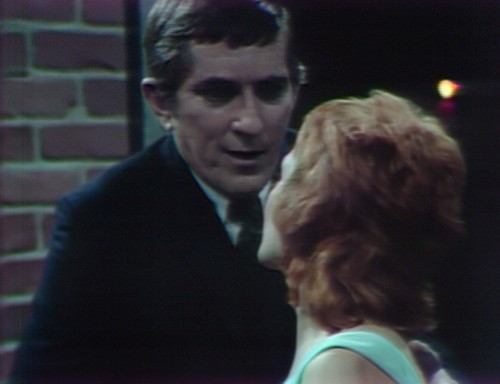
We’re three weeks away from the conclusion of the Parallel Time storyline, and as usual these days, we’re wrapping things up using the process of elimination, gradually killing off the more energetic characters until we’re left with a vampire, a villain, a deus ex machina and a small clutch of terrified refugees. It’s an odd time to introduce new faces, but if this is the exit ramp then so be it.
Barnabas is utterly thrilled to see Roxanne come to life, and he helps her get up on her feet. She looks at him, and blinks, and somewhere in the world, a witch falls.
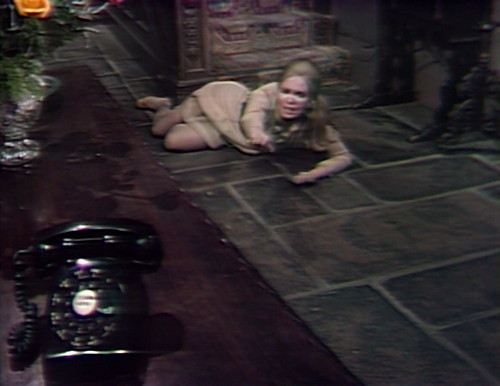
So this part is promising, at least. Roxanne exerting herself means that Angelique starts leaking life energy, dragging herself along the ground a la Christina’s World, reaching for the phone cord so she can call Stokes and say what the hell.
Any action on Roxanne’s part means that we’re a step closer to being rid of this parallel dimension version of Angelique, which is entirely fine with me; this storyline has been crawling along for months without really knowing what it’s aiming for. Angelique has been posing as her own twin sister in order to either seduce, destroy or imprison her once-husband Quentin, and get his new wife to either leave the house, jump from a window, ask for a divorce or get hung for witchcraft, a scattershot goal that’s been hard to track. If Roxanne getting up means Angelique going down, then maybe we can cut our losses and get Barnabas and Julia back to their home dimension.
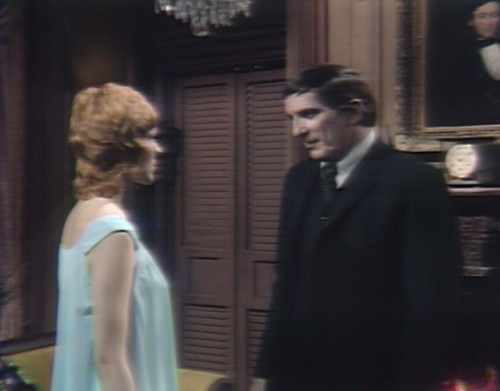
Still, I’d like to see a little more cooperation on this end. Roxanne doesn’t say a word, just staring straight ahead. Barnabas manages to lead her upstairs to the drawing room, but she’s not giving away a lot in terms of reaction.
Here’s how the conversation goes. Barnabas opens with, “You are very lovely.”

This is the response: eye contact and occasional blinking.
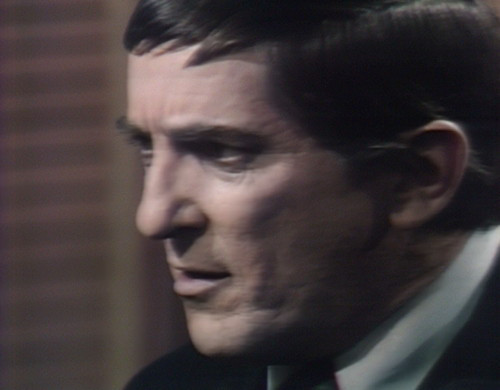
“Can you understand what I’m saying to you?” he asks. There is no evidence that she can.
“Can’t you tell me who you are? Can’t you communicate with me?” She can’t.
“If not,” he says, trying to salvage something from this train wreck of a first date, “try in some way to tell me where you come from, what it is that Stokes has done to you.”

As far as I can tell from here, she does not try. In general, if “can’t you communicate with me” doesn’t get a response, then asking for more detailed information is probably not going to get you anywhere.
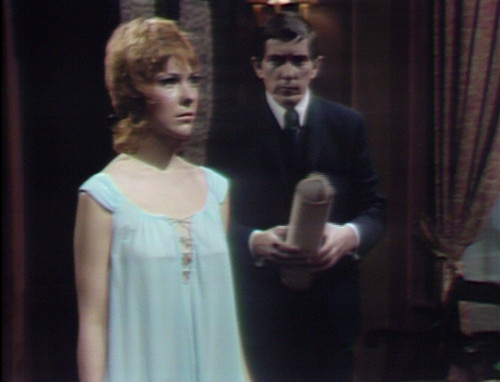
And this, right here, is the worst moment of all. This is the problem.
Barnabas decides to jog Roxanne’s memory by showing her a charcoal sketch of her that he found in the secret room of the Collins mausoleum last week. And when he goes to pick it up, she just keeps staring straight ahead, not even reacting to the fact that the person she’s supposed to be interacting with has moved to another part of the room.
So it’s not just that she can’t communicate; she’s hardly reacting to any stimulus at all. Barnabas has had more productive conversations with oil paintings. This is what it looks like when you’ve run out of ideas.
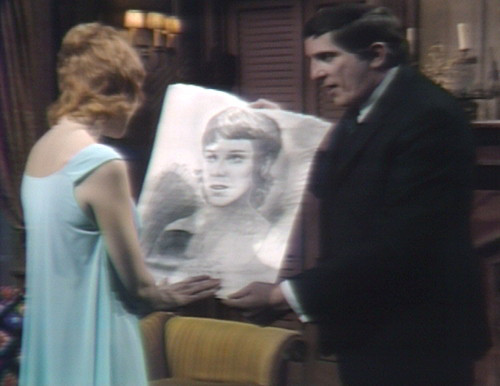
To be fair, she does perk up a little when Barnabas unrolls the artwork. She actually looks at it and smiles, and reaches out to paw at the artist’s signature. Written in large block letters at the bottom, it says CLAUDE NORTH, and I guess this means she can read.
“Yes!” Barnabas says. “Yes, you recognize the name! Claude North is important to you! Why? Can you tell me who he is?”
She can’t. Verbal communication is still not operational. Maybe he could get her a pen, or some Scrabble titles.

This isn’t going anywhere in particular, so Barnabas puts the picture away, and she slips right back into bland stare mode. He positions himself in front of her, to create the illusion that she notices he exists.
“I’m going to take you out of the house, and take you to someplace you may recognize,” he says. “Don’t be afraid of me. I only want to help you.”
She is not afraid of him. Being afraid is not the issue.
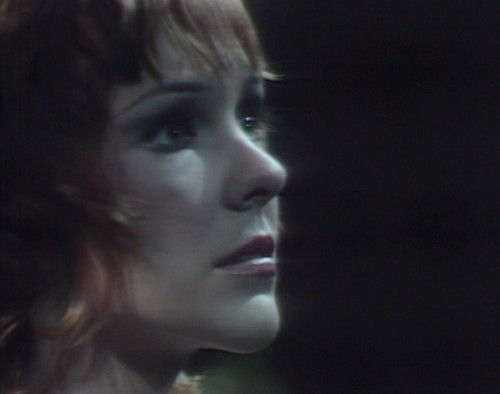
So I think at this point we have to face the fact that this is not going to be the shot in the arm that the current storyline needs. The main character of the show is signaling that he’s falling in love with this girl, and she is not participating in any noticeable way.
I mean, I know, she just opened her eyes, they’re doing a thing. I get that. This is supposed to be mysterious: the victim of a fiendish scheme, unable to communicate. The audience is supposed to lean forward, assessing each little clue, intrigued by the unfolding.
But there’s nothing here, and it comes off as desperation. It doesn’t feel like this girl is full of thrilling secrets; it feels like they cast an actress and then forgot to give her a character to play.
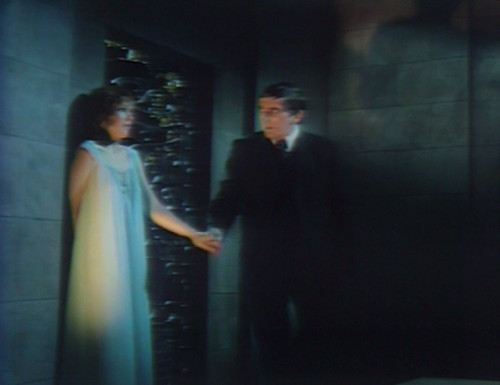
As we’ve discussed before, there are three steps to making the audience like a new character: make a friend, make a joke and make a plot point happen. This gives her value in the narrative — someone to talk to, a willingness to entertain, and a reason for the audience to pay attention to her. Roxanne is currently one for three.
She’s making a friend, kind of, although it’s more accurate to say that a friend is trying to make her. The joke, obviously, is off the table. But the real problem is the plot point, which she absolutely refuses to even attempt.
By keeping her bland, silent and mysterious, the show is telling us: this person has nothing to contribute. The only thing that matters is her existence. She’s not a character at the moment, she’s a prop.
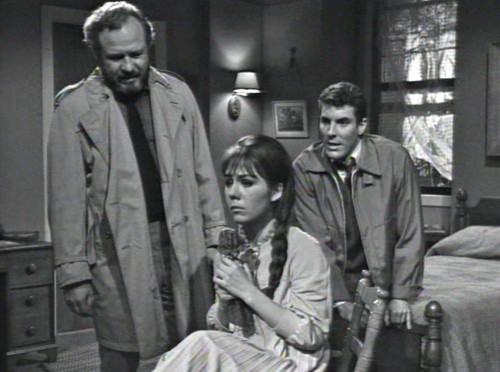
It doesn’t even feel like a “pretty girl in peril” plot, because we don’t have anything to compare this to. We’ve seen characters lose their identities before, and it’s a reliable way to generate audience sympathy. The best example is probably Maggie getting kidnapped and brainwashed by Barnabas — temporarily becoming a dizzy love slave in a wedding dress, and then reverting back to childhood after the ordeal was over.
Not being able to recognize yourself or understand the world around you is a scary situation, and in Maggie’s case, the audience could empathize with her struggles. But Maggie was already a character that we knew, with strong relationships and a coherent personality. If she was first introduced as the overgrown child-Maggie, with no previous glimpses of her actual character, she would be annoying, just a sad, crazy girl that we didn’t know or like. The story worked because we had a basis for comparison between regular Maggie and this new, damaged parallel Maggie.
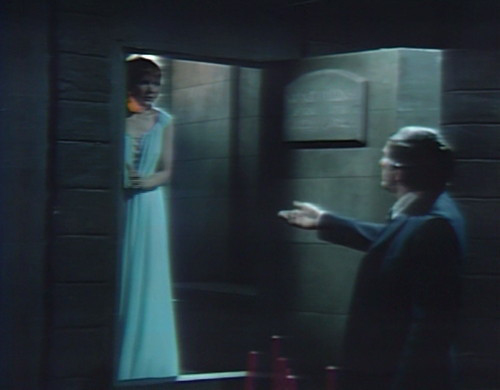
When Barnabas leads Roxanne into the mausoleum, they do give us a little bit of a reaction — she’s scared, and needs to be coaxed into the secret room. Unfortunately, that hesitation doesn’t give us any new information — anybody would be nervous, being led into this spooky place by a stranger.
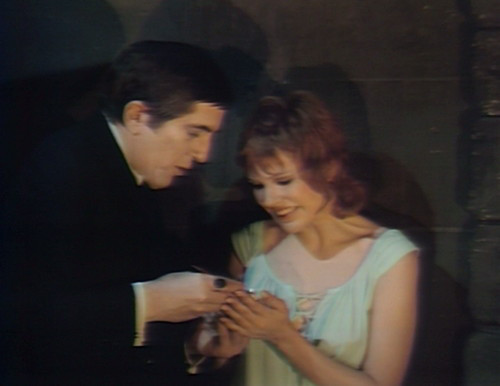
We finally get something unique out of her, although it’s hard to know what to make of it. This room is where Barnabas found the charcoal sketch, so he knows she has some connection to it. Someone’s been living here — there’s a bed and a table and a bottle of milk — and Barnabas’ guess is that the occupant is Claude North, another stranger that we know very little about.
Barnabas finds a dagger in the room, and he shows it to Roxanne — and she brightens up, staring at the murder weapon like it’s a puppy. So now we know that she likes knives, I guess, if that helps.
Tomorrow: The Invention of Feelings.
Dark Shadows bloopers to watch out for:
When Barnabas asks Roxanne, “Can you understand what I’m saying to you?” someone in the studio coughs. There’s also a cough after Barnabas’ voiceover in the secret room of the mausoleum: “Someone else has been in this room since I was here!” The nice thing about being a Dark Shadows character is that you’re never really alone.
When Barnabas brings Roxanne into the mausoleum, you can see one of the studio lights peeking into the top of the frame.
Angelique and Stokes talk over each other in act 2 — Stokes says, “If she recovers her powers of speech…” as Angelique is saying, “What are you talking about?”
Angelique tells Stokes, “I’ve come too far to have everything destroyed by some — by your fear for some ordinary man!”
Tomorrow: The Invention of Feelings.
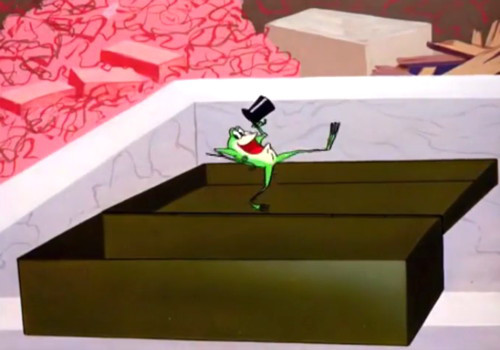
Dark Shadows episode guide
— Danny Horn
Share this:

